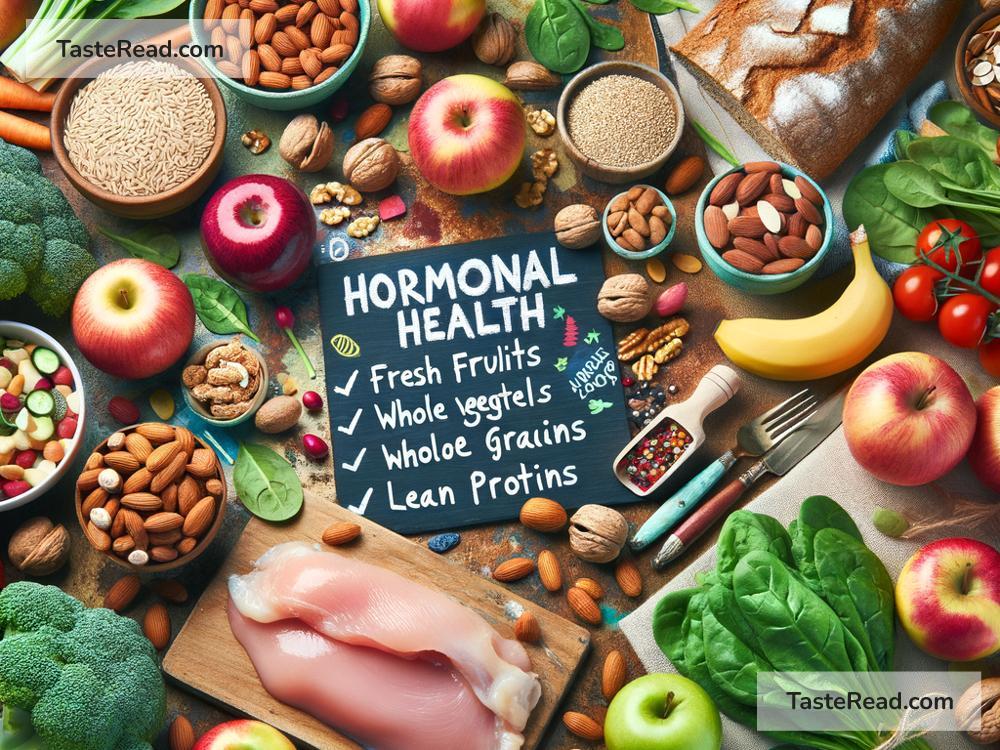The Benefits of a Balanced Diet for Hormonal Health: Supporting Endocrine Function
When people think about health, they often focus on aspects like fitness, weight, or heart health. But there’s one part of the body that doesn’t get enough attention: hormones. Hormones are chemical messengers that help regulate almost everything in your body, from growth and mood to energy and metabolism. These messengers are controlled by the endocrine system, a complex network of glands. If your hormones are out of balance, it can lead to fatigue, mood swings, poor sleep, weight gain, and even serious health issues like diabetes or thyroid problems.
One of the best ways to support your hormonal health is through a balanced diet. What you eat plays a big role in how your glands produce hormones and how your body uses them. Let’s explore how a balanced diet benefits your hormones—and some simple tips to keep your endocrine system happy.
What Is a Balanced Diet?
A balanced diet means eating a wide variety of foods that provide the nutrients your body needs to function properly. This includes:
- Proteins: Found in foods like meat, fish, eggs, beans, and nuts.
- Healthy Fats: Sources include olive oil, avocados, nuts, seeds, and fatty fish.
- Carbohydrates: Choose whole grains, fruits, and vegetables instead of sugary or refined options.
- Vitamins and Minerals: Found in fresh fruits, vegetables, dairy, nuts, seeds, and other wholesome foods.
- Water: Staying hydrated is also essential for overall health, including hormone production.
Eating a balanced diet ensures your body gets everything it needs to maintain hormonal harmony.
The Connection Between Food and Hormones
You might be wondering—how does food affect hormones? The answer lies in the nutrients. Certain nutrients act as building blocks for hormone production, while others help your glands function effectively. Here’s a closer look:
-
Healthy Fats Are Crucial for Hormone Production
Hormones like estrogen, testosterone, and cortisol are made from cholesterol—yes, cholesterol! This means consuming healthy fats (like omega-3s from fish and nuts) is essential for hormone production. Healthy fats also help regulate inflammation, which can impact hormonal balance. -
Protein Supports Growth and Repair
Proteins provide amino acids that are needed to produce hormones such as insulin and growth hormone. Additionally, protein-rich foods help stabilize blood sugar levels, which is key to keeping hormones like insulin in check. -
Fiber Promotes Hormonal Detox
Fiber, found in fruits, vegetables, whole grains, and legumes, helps your body eliminate excess hormones like estrogen. When your diet lacks fiber, hormones can build up in your system, leading to imbalances. -
Stable Blood Sugar Protects Hormonal Health
Eating too much sugar (or refined carbohydrates) can cause spikes and crashes in blood sugar. These fluctuations stress your endocrine system and overwork hormones like insulin and cortisol. By choosing whole grains and avoiding added sugars, you help your hormones stay balanced. -
Micronutrients Keep Glands Functioning
Vitamins and minerals play specific roles in keeping your glands healthy. For example: - Iodine is essential for thyroid hormone production (found in fish and iodized salt).
- Magnesium helps regulate stress hormones like cortisol.
- Vitamin D plays a key role in reproductive hormones, and also supports the immune system.
Endocrine System Health Tips
If you want to support your hormonal health, focus on these dietary and lifestyle habits:
-
Eat Enough Healthy Fats
Include foods like avocados, nuts, seeds, fatty fish, and olive oil in your meals. Avoid trans fats, which are found in processed snacks and fried foods. -
Prioritize Protein in Every Meal
Make sure you’re eating protein-rich foods like eggs, chicken, fish, beans, or tofu. This helps keep your energy stable and supports muscle and hormone repair. -
Avoid Sugar Spikes
Cut down on refined carbs like white bread, pastries, and candies. Instead, choose whole grains, which release glucose slowly into the bloodstream, keeping insulin levels steady. -
Stay Hydrated
Dehydration can disrupt the production of hormones like cortisol. Drink plenty of water throughout the day to support your body’s processes. -
Eat Colorful Fruits and Vegetables
The vitamins and minerals in fruits and veggies are crucial for hormonal balance. Aim to have a variety of colors on your plate (like leafy greens, berries, orange carrots, etc.). -
Get Enough Sleep
Poor sleep can wreak havoc on your hormones, especially cortisol and melatonin. Aim to get 7-8 hours of rest each night to support recovery and balance. -
Manage Stress
Chronic stress raises cortisol levels, which can disrupt other hormones. Practice relaxation techniques like deep breathing, yoga, or meditation.
Foods That Boost Hormonal Health
Some foods are known to be especially supportive of hormonal balance. Consider including these in your diet:
- Fatty Fish (like salmon): High in omega-3 fatty acids that reduce inflammation and support mood-related hormones.
- Cruciferous Vegetables (like broccoli and cauliflower): Help detoxify excess estrogen.
- Avocados: Packed with healthy fats and vitamin E for hormone regulation.
- Nuts and Seeds: Rich in magnesium and zinc, both needed for hormone production.
- Whole Grains: Excellent for stabilizing blood sugar.
- Leafy Greens: Full of vitamins, minerals, and antioxidants to nourish your glands.
Final Thoughts
Your hormones play a powerful role in how your body functions every day. By eating a balanced diet that includes healthy fats, protein, fiber, and plenty of vitamins, you can support your endocrine system and keep your hormones in check. Small daily choices—like swapping sugary snacks for nuts or drinking more water—can make a big difference.
Remember, your body is like a team, and hormones are the coaches that keep everything running smoothly. Feed them well, and they’ll take care of you!


